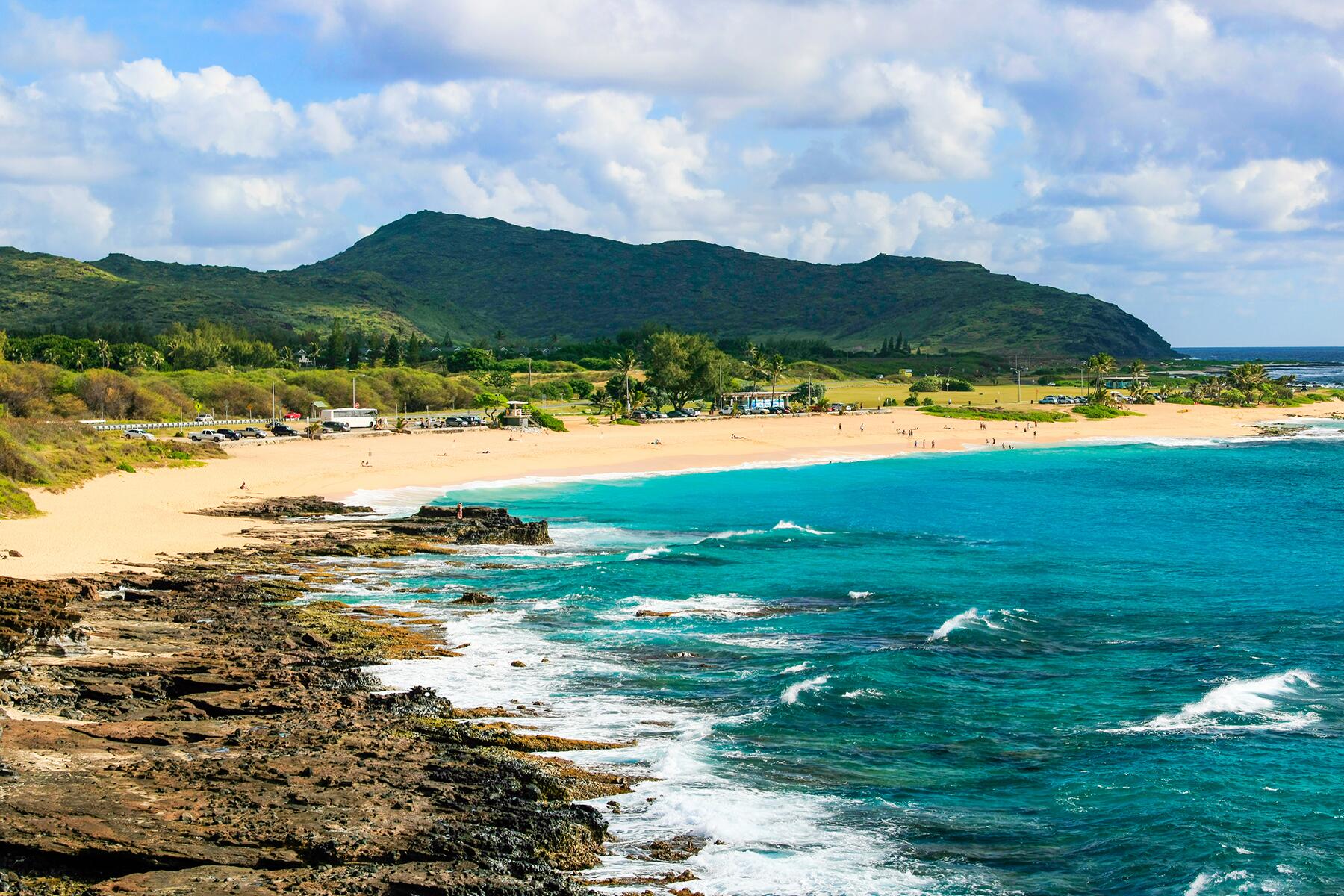The U.S. Department of State has some very specific warnings.
American travelers can typically answer the question “Is it safe to go?” by looking at the list of travel advisories posted by the U.S. State Department. They are updated regularly as situations in a country change and they cover a myriad of dos, don’ts, and everything in between.
Interestingly, international financial scams are more common than you’d imagine—romance/fake dating scams and skimming at ATMs are mentioned again and again. The department also reminds travelers that if they commit a crime in another country, they will be tried under local laws and the U.S. doesn’t pay for medical bills abroad even though it provides consular services in many parts of the world. Be cautious of the Alps in Switzerland; the wildlife in Australia; and the beaches in the Seychelles and Mauritius. And everywhere you go, keep an eye on your belongings, your drinks, and your surroundings.
No country is 100% safe, and we know this because we read all the travel advisories to find these very specific warnings, suggestions, and not-so-subtle discouragements.
Tourist Tea Scam in China
Last year, the State Department placed China on its list of countries with a Level 3 – Reconsider Travel warning, where it still remains, due to arbitrary laws, the possibility of detainment, and exit bans on foreigners. However, the U.S. State Department also warns of a very specific “tourist tea” scam, where locals “invite visitors out to tea and leave them with an exorbitant bill.” This is not unique scam to China, and is found all over the world–though usually it’s specific to bars.
Recommended Fodor’s Video
Bringing Weapons Abroad
The Transportation Security Administration is perpetually posting on social media about guns they have seized—in 2023, the number was 6,737 and 93% were loaded. There are tips on traveling with weapons (“unloaded firearms in a locked hard-sided container as checked baggage only”) available on their website.
However, you should know that around the world, countries don’t really welcome you with open arms if you’re carrying arms. Most will detain you and the penalties can be very strict.
The U.K. is just one example. The State Department warns that importing firearms to the country is complicated and even mace, pocket knives, and blades are restricted. In the Bahamas, the penalty is up to 10 years in prison. In Trinidad and Tobago, “Individuals found with as little as one bullet, a previously discharged bullet casing, or spent ammunition used in items such as jewelry or keyrings on their person or in their luggage at the airport have been detained, charged, and fined.”
Know that declaring your firearms doesn’t mean you are permitted to enter another country with it.
Landmines in Croatia
In Croatia, armed conflict ended in 1995, but there are still landmines in the country. Drivers should stick to paved roads while in former conflict areas and keep an eye out. “Known mined areas are well marked with Croatian-language warning signs using the international symbol for mines: a skull and crossbones inside a red, upside-down triangle.”
Common Sense in Iceland
Iceland is safe with a very low violent crime rate. And the government passive-aggressively hits this point home: “Using common sense will go a long way in ensuring you do not become a victim.” The obvious tips are don’t leave your bags on the floors in nightclubs or in parked, locked cars; and know that downtown Reykjavik is disorderly late at night.
Children’s Rights in Norway
Last year in India, a movie called Mrs. Chatterjee Vs. Norway was released, based on a real story of the Norway social services separating kids from their parents. It’s a well-documented and controversial problem in Norway, where child welfare policies are routinely criticised for overreaching and especially targeting immigrants due to cultural differences on parenting.
The U.S. State Department echoes that the treatment of children is taken very seriously. “All forms of corporal punishment of children are against the law, and any form of violence, humiliating treatment, or neglect may result in the child being taken away from parents by the Norwegian authorities and placed into long-term care by Norway’s social services.”
Social Media in the U.A.E.
The U.A.E. is culturally different from the U.S. Public displays of affection aren’t allowed and people are advised to dress modestly. Drug laws are very strict, too.
In addition, don’t criticize the government or officials on social media. The U.S. government cautions, “Individuals have been arrested and criminally convicted for posting information on social media sites (such as Facebook, Twitter, YouTube, etc.) that local authorities determined was disturbing to the order of the U.A.E.”
Camouflage in Trinidad and Tobago
Packing those camouflage tops for Trinidad and Tobago? You won’t be able to wear it in public—it’s illegal. Only military personnel may wear camouflage uniforms. Barbados also prohibits camouflage, even for children.
Related: The 10 Weirdest Things Passengers Were Caught Traveling With
Jet Blast in Sint Maarten
You know how tourists love to go to the Maho beach in Sint Maarten to experience the thrill of aircrafts flying right above their heads? It is considered extremely dangerous and deadly—a tourist was killed in 2017. Don’t do it.
Travel Holds in Jordan
In Jordan, an adult male can prevent his minor kids or spouse from leaving the country. Similarly, male relatives can also place travel holds on unmarried females. The Department of State warns, “Immigration officials may prevent minor children traveling with their mothers from departing Jordan without the father’s affirmative consent. This is possible even if the child or woman holds only U.S. nationality.”
Parents can also prevent a child from travelling outside of the country in South Korea and exit holds are also present in Saudi Arabia, and women may require permission from men for outbound travel.
‘Vacation Cutting’ in Kenya
Female genital mutilation or cutting isn’t legal in the U.S. on minors under 18 years and those found guilty are fined or imprisoned for up to five years. These practices are known to happen in Kenya, but it is also a criminal offense to bring a minor into the country for the purposes of so-called “vacation cutting.”
Humiliation Charges in Kuwait
Insulting anyone verbally or by making gestures in a public place–whether the insult is directed at an official or a private citizen–is an offense in Kuwait. It can lead to fines, imprisonment, or deportation. Similar laws exist in other Gulf countries, too.
Sending Passports Through the Mail in Morocco
In Morocco, it’s illegal to send passports by mail to other countries, including via FedEx or DHL. Doing so will result in your passport being confiscated. However, there’s good news–the passport will eventually wind up in the hands of the U.S. Consulate in Casablanca, so should this happen, you’ll get it back.
Voluntourism Exploitation in Nepal
The U.S. government says it multiple times in capital letters: DO NOT TREK ALONE. Foreigners have gone missing from trails or have been seriously injured. Search and evacuation efforts by helicopter are costly, so make sure your insurance covers it. And of course, prepare for the altitude and unfriendly conditions in the mountains and know that Nepal frequently experiences natural disasters.
But one other important warning that comes from the State Department covers volunteering opportunities at orphanages. First, it’s illegal on a tourist visa. Second, the orphanages may not be charities and the children may be exploited. The agency “applauds this generous spirit” of people traveling to volunteer, but it suggests travelers do their homework.
Related: If You Think Traveling to Visit Orphanages Is Helpful, It’s Time to Reconsider
Royal Insult in Thailand
The royal family of Thailand is revered. When the widely-loved King Bhumibol Adulyadej passed away in 2016, the nation went into mourning and tourists were advised to be respectful. The Asian country strictly imposes lèse majesté, a law that forbids any insult to the monarchy and those found guilty can be jailed for up to 15 years. The U.S. State Department says, “As an example, purposely tearing Thai bank notes, which carry an image of the King, may be considered a lèse majesté offense.”
Card Games Scam in Cambodia
In Cambodia, be careful when traveling in a tuk-tuk and visiting casinos. A particular scam that you should know involves card games, where tourists are invited to play games at someone’s house with the intention of stealing their money. The State Department warns that the local police don’t investigate crimes against tourists and police stations may charge foreigners up to $100 to file a report.




